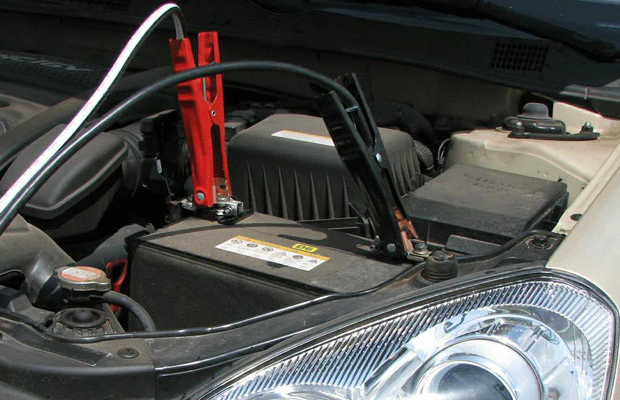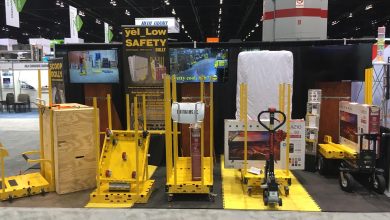In the world of flexible hoses, purchasing wholesale offers businesses a chance to maximize value through cost savings, consistent supply, and streamlined procurement processes. However, choosing the right wholesale supplier is crucial to ensuring you receive high-quality products that meet your specific needs. This blog will guide you through the steps of selecting the right Flexible hose wholesale supplier, ensuring you maximize the value of your purchase while minimizing risks.
The Importance of Choosing the Right Wholesale Supplier
Selecting the right wholesale supplier can make a significant difference in the success of your operations. A good supplier will offer:
- Cost Efficiency: Lower per-unit prices and bulk discounts.
- Quality Assurance: Reliable, high-quality hoses that meet industry standards.
- Dependability: Timely delivery and consistent supply to avoid operational disruptions.
- Customer Support: Ongoing support, including technical advice and after-sales service.
Steps to Choose the Right Flexible Hose Wholesale Supplier
1. Define Your Requirements
Before you start looking for suppliers, it’s essential to have a clear understanding of what you need. Consider the following:
- Hose Specifications: Determine the specific type, size, material, and performance requirements of the hoses you need.
- Quantity: Estimate the volume of hoses required for your operations. Will this be a one-time purchase or an ongoing order?
- Application: Understand the environment and conditions in which the hoses will be used. This includes factors like pressure, temperature, and chemical exposure.
Example: An oil and gas company might require hoses that can withstand high pressure and are resistant to harsh chemicals. Clearly defining these needs will help you filter potential suppliers effectively.
2. Research Potential Suppliers
Once you have a clear understanding of your requirements, start researching potential suppliers. Key factors to consider include:
- Industry Experience: Look for suppliers with a proven track record in providing hoses for your specific industry or application.
- Reputation: Check reviews and testimonials from other businesses to gauge the supplier’s reliability and product quality.
- Certifications: Ensure that the supplier’s products meet industry standards and are certified by relevant authorities.
Example: A food processing company should choose a supplier that offers hoses certified for food safety standards, ensuring they meet regulatory requirements.
3. Evaluate Product Quality
Quality is paramount when it comes to flexible hoses, as poor-quality hoses can lead to failures, leaks, and costly downtime. To evaluate quality:
- Material Composition: Ensure the hoses are made from durable, high-quality materials suited to your application.
- Performance Testing: Ask the supplier about their testing procedures. Hoses should be tested for durability, pressure resistance, and flexibility.
- Sample Evaluation: Request samples from the supplier and conduct your own tests to ensure they meet your performance standards.
Example: A construction company should test sample hoses for durability under high-pressure conditions to ensure they can handle the demands of the job site.
4. Compare Pricing and Terms
While cost is a significant factor, it’s essential to consider the overall value rather than just the price. When comparing pricing:
- Bulk Discounts: Ask about discounts for large orders. Some suppliers may offer better rates for higher volumes.
- Additional Costs: Be aware of any hidden costs, such as shipping, handling, or customization fees.
- Payment Terms: Negotiate payment terms that align with your cash flow and budget.
Example: An agricultural business might negotiate a payment plan that allows for seasonal payments, aligned with harvest cycles.
5. Assess Delivery and Logistics
Timely delivery is critical to maintaining your operations. When evaluating suppliers, consider:
- Lead Times: Ensure the supplier can meet your required delivery schedule. Delays can disrupt your operations and lead to increased costs.
- Shipping Options: Assess the supplier’s shipping methods and costs. Choose a supplier that offers reliable and cost-effective shipping solutions.
- Order Fulfillment Accuracy: Check the supplier’s track record for order accuracy and completeness. Incorrect or incomplete orders can lead to significant delays.
Example: A company with multiple locations should choose a supplier with a reliable logistics network that can deliver hoses to various sites on time.
6. Consider Customization Options
Depending on your application, you may need hoses with specific features or dimensions. Some suppliers offer customization options:
- Custom Sizes and Lengths: Ensure the supplier can produce hoses in the exact dimensions you require.
- Special Features: Ask about the availability of hoses with special features, such as anti-static properties, high-temperature resistance, or reinforced layers.
- Prototype Testing: If possible, test a prototype before committing to a large order to ensure the customized hose meets your needs.
Example: A medical device manufacturer may require custom hoses with specific diameters and materials to comply with stringent regulatory standards.
7. Evaluate Customer Support and After-Sales Service
Good customer support is crucial for addressing any issues that arise during or after the purchase. When evaluating suppliers, consider:
- Technical Support: Choose a supplier that offers technical assistance and guidance on hose selection, installation, and maintenance.
- Warranty and Return Policies: Review the supplier’s warranty and return policies to protect your investment.
- Ongoing Support: Ensure the supplier is responsive and willing to assist with any issues that may arise after the sale.
Example: An industrial plant should prioritize a supplier that provides robust after-sales support, including on-site assistance if needed.
8. Review Environmental and Ethical Practices
If your business prioritizes sustainability and ethical practices, consider suppliers that align with these values:
- Eco-Friendly Materials: Look for hoses made from recycled or sustainable materials.
- Green Manufacturing: Choose suppliers that follow environmentally responsible manufacturing practices.
- Ethical Sourcing: Ensure that the supplier adheres to ethical labor practices and fair trade standards.
Example: A company with a strong corporate social responsibility (CSR) program might choose a supplier that uses eco-friendly materials and supports fair labor practices.
Making the Final Decision
After evaluating potential suppliers based on the criteria above, narrow down your options to the top contenders. Here’s how to make the final decision:
- Request Proposals: Ask your shortlisted suppliers to submit detailed proposals, including pricing, delivery schedules, and terms.
- Conduct Interviews: If possible, conduct interviews or meetings with the suppliers to discuss your requirements and assess their responsiveness.
- Check References: Contact other businesses that have worked with the supplier to get firsthand feedback on their experience.
- Negotiate: Don’t hesitate to negotiate terms to get the best deal. This includes discussing payment terms, discounts, and any additional services.
- Sign a Contract: Once you’ve chosen a supplier, finalize the agreement with a clear, written contract that outlines all terms and conditions.
Conclusion
Choosing the right flexible hose wholesale supplier is a critical step in maximizing the value of your purchase. By defining your requirements, researching potential suppliers, evaluating quality, and considering factors such as delivery, customization, and customer support, you can make an informed decision that benefits your business in the long run.
Investing time and effort in selecting the right supplier will not only save costs but also ensure you receive high-quality products that meet your needs, leading to more efficient and reliable operations. Whether you’re in construction, manufacturing, agriculture, or another industry, the right supplier can be a valuable partner in your success.





